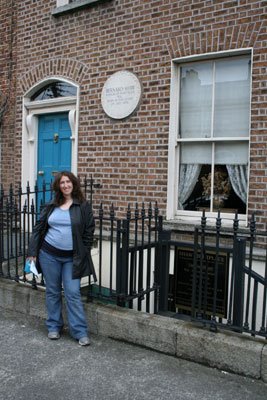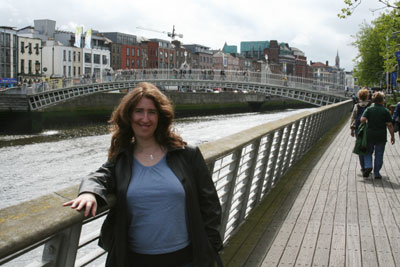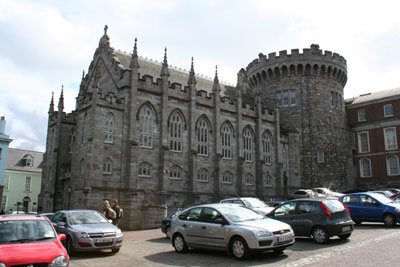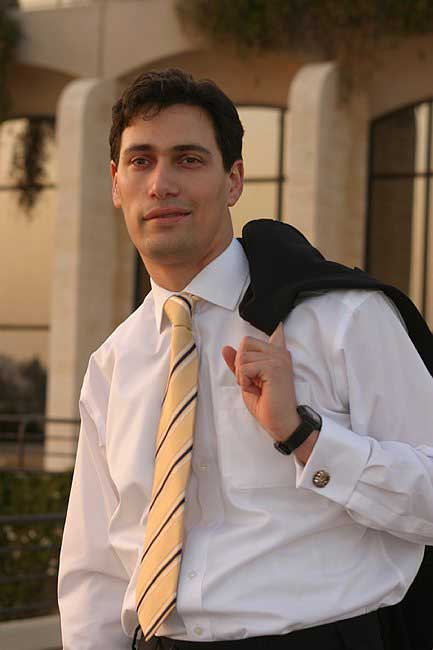Bermant's blog
Danny Bermant's blog
Friday, June 23, 2006
Wednesday, June 21, 2006
The world cup and the rapidly disappearing union jack
In 1966, England hosted (and won) the world cup finals. The country was a awash with patriotic fervour, and there were union jacks everywhere. Even the Mascot, World Cup Willie wore a Union Jack.
Fast forward 40 years to 2006 and it's all very different. The England supporters are still talking about 1966 and the flags are everywhere, but this time the union jacks have been replaced by the St George Cross. What's happened? Is this is the end of the United Kingdom? Have we stopped becoming British and transformed into a nation of English, Welsh and Scots?
Last week, BBC Two screened a programme: "The Union Jack: A banner for Britain". Various people were interviewed who suggested the union jack has had it's day. Billy Bragg (predictably) said it's reputation was tarnished by the far right. Some British Muslims viewed it with suspicion. Other's saw the United Kingdom as an artificial entity.
The British have always felt awkward about flying the flag. Dr Johnson once called patriotism the "last refuge of the scoundrel". Over the last fifty years, Europe's political elite has seen the nation state as an aberration, the cause of Europe's wars, an anachronism that should be replaced by transnational institutions such as the European Union and the UN. At the same time, they have promoted the cause of regional devolution. Spain has given autonomy to the Basque and Catalan regions, and Britain has devolved power to the Scottish and Welsh partliaments. Whilst national identity has been weakened, regional identity has been strengthened. Not surprisingly, England's supporters have been affected by all this, and are more inclined to see the national team as English rather than British.
Personally, I think this is all a fad that will last as long as the world cup tournament. Yes, there have been one or two attacks on English supporters in Scotland but this hardly heralds the break up of the United Kingdom.
Meanwhile, for the first time in 60 years, German football supporters been flying their national flag with pride, and without nationalist overtones. As Gerard Baker wrote in last Friday's Times, they have finally moved on, and in doing so have proved to Europe's political elite that despite their best efforts, you can never snuff out the nation state.
Sunday, June 18, 2006
British multiculturalism is skin deep (no pun intended)
On Friday, Melanie Phillips had an article in the National Post warning that Islamists pose the same threat to Canada as they do to the UK. She was of course drawing on her experience of Londonistan and the circumstances leading to the 7/7 bombings.
Having visited Canada on several occasions (my parents-in-law live in Toronto), I used to think the situation there is a little different. One thing that struck me was how truly multicultural Canada is and how it makes British multiculturalism look contrived in comparison. In Canada, there is less talk about multiculturalism as it's simply part of the national identity. Being an immigrant society, everyone there is to some extent a newcomer, or at least their parents / grandparents were newcomers in the not too distant past. Canadians are patriotic, and fly their flag with pride. In fact you see the maple leaf everywhere. Try flying the Union Jack in Britain, and people think you're crazy, or worse, a neo-nazi!
In Britain, everyone talks about multiculturalism incessantly as if they keep needing to remind themselves to tolerate minorities. There's a reason for this. Britain's population has been settled for far longer plus there is all the baggage of colonialism. As a result, despite a lot of goodwill, it has been a lot harder for Britons to adjust to immigration. On one hand, there are the xenophobes who have not been able to cope with the changes resulting from immigration. On the other, there are many within Britain's establishment with a guilt complex, who are ashamed of Britain's history, and feel obliged to downplay British values and culture. As a result, it makes multiculturalism feel very self conscious, especially compared to Canada.
In the light of recent events however, it might be time to revise my view of Canada. It certainly isn't the self hating country that Britain is, but the danger of multiculturalism is that it's based too much on what differentiates you rather than what binds you. Canadians are proud of what they aren't: they're not American, they don't carry guns, they don't have the death penalty, and if they're new immigrants, they're not Canadian but are the nationality of the country they left. So what's left? The similarities to Britain are becoming more and more apparent.
Dina d'malchuta dina
Reading the Saturday Telegraph, I was impressed to see how much Charles Moore knows about Dina d'malchuta dina. (More than many Jews I would imagine!)
Dina d'malchuta dina ("the law of the land is law"): is an additional source of Jewish law, being the principle recognising non-Jewish laws and non-Jewish legal jurisdiction as binding on Jewish citizens, especially for many areas of commercial, civil and criminal law, provided that they are not contrary to any laws of Judaism.
The point that Charles makes is that despite all the obstacles that Anglo Jewry has faced over the last 350 years (Jews could not sit in Parliament until the mid-19th century, for example), it has made huge achievements out of all proportion to its size (Anglo Jewry makes up less than 0.5% of the population). Rather than fight the society they live in, Jews have actively tried to engage with society and to contribute to it.
The fact that Judaism isn't a prosyletising religion may help, but it's also what Jonathan Sacks has referred to as the "dignity of difference". Jews may not always agree with the way their host society behaves or everything it does, but would rather contribute to the national debate than withdraw from the society they live in. It's a lesson the Muslim community (and proponents of multiculturalism) would do well to learn.




